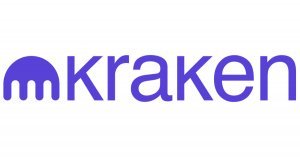San Francisco-based cryptocurrency exchange Kraken is reportedly nearing the launch of its own bank in the United States, a few weeks after it paid $30 million to settle SEC’s charges it offered unregistered securities.
Kraken already has approval from a state regulator in the US to launch a crypto bank under an SPDI charter. It applied for a bank charter under Wyoming’s special-purpose depository institution law.
An SPDI bank charter permits Kraken to operate an independent bank that will reduce reliance on third-party financial institutions and allows the exchange to provide deposit-taking, custody and fiduciary services for digital assets.
“Kraken Bank is very much on track to launch, very soon. We’re going to have those pens with the little ball chains. We’re going to order thousands of them and attach them to the desks of Wall Street banks everywhere with our logo,” Kraken’s chief legal officer Marco Santori told The Block.
Part of its settlement deal, Kraken shuttered its US cryptocurrency staking operation, which Santori said it had been a small percentage of the exchange’s revenue. However, the SEC claims Kraken held assets worth over $2.7 billion for US customers, earning it around $147 million in revenue.
Additionally, Kraken was hit by $362,158 fine in November to settle its civil liability for apparent violations of US sanctions on countries like Iran. The authorities probed Kraken’s transactions with Iranian users since 2019. In addition, the company failed to inform OFAC about these transactions and did not voluntarily disclose the violations of US sanctions.
“It’s really indicative of a pretty unfortunate situation here stateside. We’ve got a regulatory environment that is essentially forcing users off to use offshore exchanges that will gladly accept their business with so little as a VPN,” he added.
Stablecoin issuer Circle is also in discussions with US regulators to become the fourth crypto-native company to score a federal trust charter through the Office of the Comptroller of the Currency (OCC).
Circle expects to serve as a compliant bridge to the US dollar payments system and its stablecoin USDC. However, it will be required to comply with all federal and state laws, including ‘know your customer’, anti-money laundering and related regulations. It will also comply with SPDI and digital asset laws, which include requirements that fiat deposits be 100% reserved and meet the consumer protection standards.












 All while Pfizer—a company with a $2.3 billion criminal fine for fraudulent marketing, bribery, and kickbacks—was given blanket immunity from liability and billions in taxpayer dollars to produce a vaccine in record time with no long-term safety data.
All while Pfizer—a company with a $2.3 billion criminal fine for fraudulent marketing, bribery, and kickbacks—was given blanket immunity from liability and billions in taxpayer dollars to produce a vaccine in record time with no long-term safety data.
























